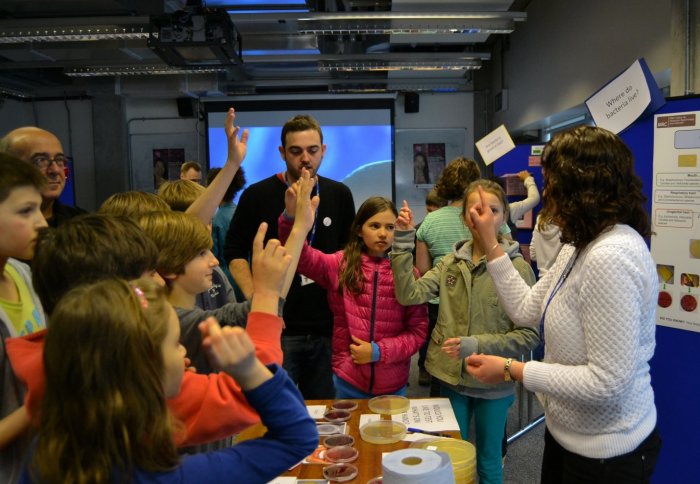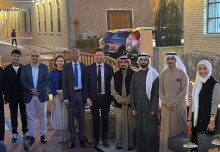

Hidden Wonders, presented by the MRC Centre for Molecular Bacteriology as part of National Science and Engineering Week (14-15 March 2014).
Hidden Wonders: a journey into the bacterial world" was held at the MRC Centre for Molecular Bacteriology and Infection, Imperial College on Friday 14 and 15 Saturday 15 March. The event, developed by the Centre's Postdoc Association, and with the help of over 20 volunteer staff and students from the Centre, was part of National Science and Engineering Week.

Overall, the aim was to present to the general public some of the key features of bacteria: what they are; where they live; why some bacteria are dangerous; and how we combat them. The exhibition comprised visual and audio displays, games, hands-on activities and even a mock lab.
Entrance was free and approximately 200 visitors, mainly school groups and local families, attended over the two days. Visitors had the opportunity to watch videos, dress up as a scientist, play scientific games, look down a microscope and make hand prints on LB agar plates.
Among other molecular microbiology techniques, visitors to the mock lab had the opportunity to extract DNA, make a bacterial transformation and inoculate overnight liquid cultures.
 Feedback from the visitors was positive and two school students made the following comments.
Feedback from the visitors was positive and two school students made the following comments.
"I discovered a lot of interesting facts about bacteria that not many people realise. Common misconceptions (such as all bacteria being 'bad') were highlighted as well as amazing facts that I had never heard before. For example, humans have 10x the amount of bacteria cells than human cells in their body! I also did a great experiment where we had to extract DNA from a banana and found out that it does not take very long for micro-organisms to develop resistance to medicines. I enjoyed visiting such a prestigious university (Imperial College London) and found the overall trip very worthwhile. I thought it was great that we got the opportunity to access information that is often unavailable to many A level biology students."

"The trip was brilliant and really interesting. We got to learn about bacteria and the ways scientists use them in biological research. I especially enjoyed learning about the systems and mechanisms bacteria use to infect cells. Also, the people there were really enthusiastic in teaching us about their field." 
Article text (excluding photos or graphics) © Imperial College London.
Photos and graphics subject to third party copyright used with permission or © Imperial College London.
Reporter
Kylie Glasgow
Department of Infectious Disease



